For the most part, there are two ways to rack mount a server: Shelves and rails. Still, when you’re in the market for mounting equipment, you’ll likely come across products that seem similar but have different names. Here, we’ll describe the main differences between shelves and rails while bringing up some other common terms for these products.
What are L brackets for server racks?
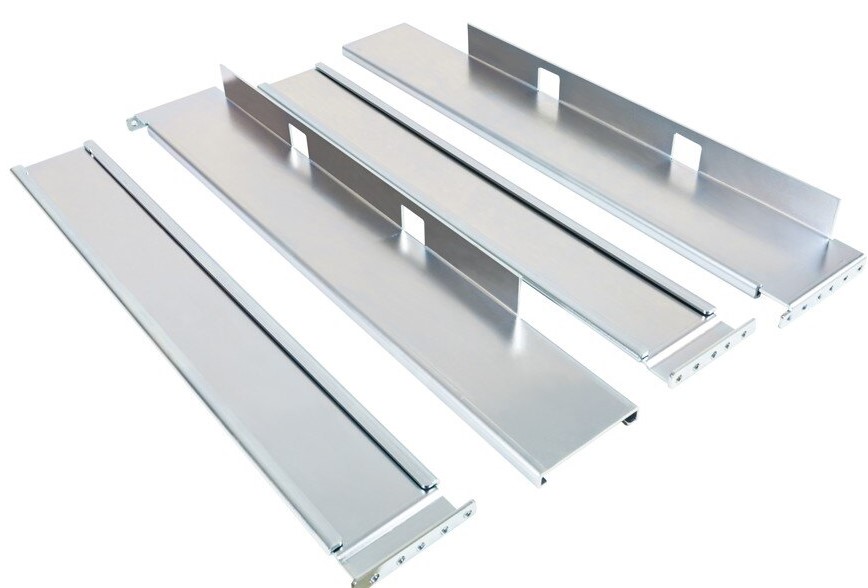
In the traditional sense, an L bracket is metal bent at a 90 degree angle that can support other objects. They look like a chair, and are often used to attach to shelving in a home environment.
In the server rack world, L brackets are often an alternative to mounting on shelves and server specific rails. They can be compatible with any server, unlike traditional rails and use less space and materials than shelves.
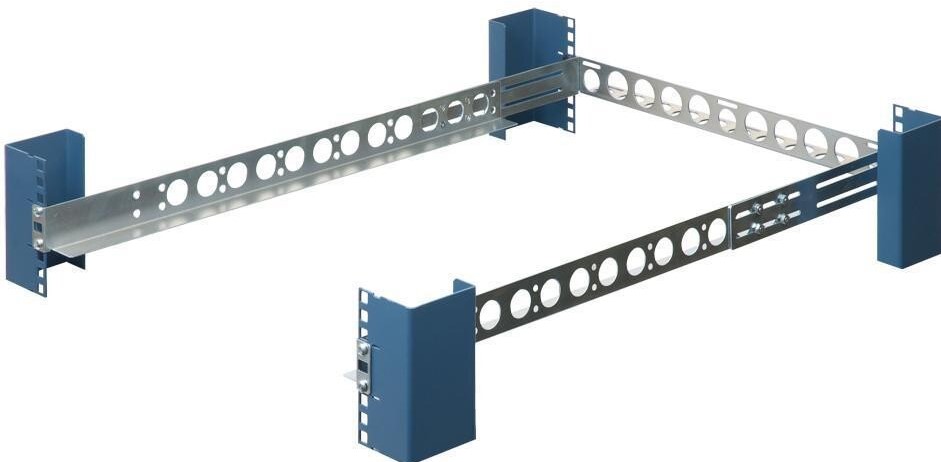
L brackets range greatly in quality. Some come with additional features like both 2 post and 4 post mounting, depth adjust-ability or are just flat out made well. Others are basic, thin sheets of bent metal that are either designed for 4 post or 2 post racks.
Typically when these rails come with less features, they are marketed as L Brackets and when extra features are included, they are called universal rails.
What are server rack rails?
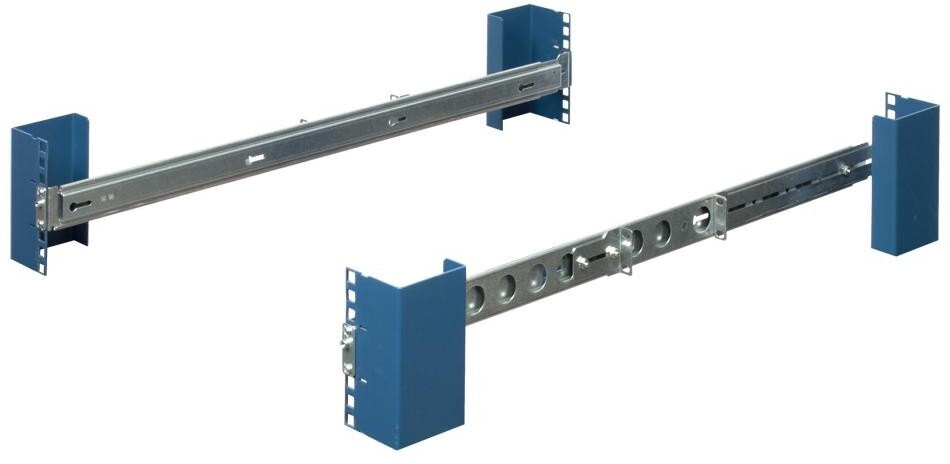
Server rails are a name given to products that are designed to mount servers into racks. The dictionary defines a rail as “a bar or series of bars, typically fixed on upright supports, serving as part of a fence or barrier or used to hang things on.”
Universal and server specific rails are different in implementation, but because they are both bars fixed on upright supports they are considered rails. This design separates them from shelves, even though servers rest on universal rails like they would on a shelf.
Server specific rails utilize built-in mounting features on rails called shoulder nuts. They are essentially pegs on the sides of servers that latch into slots on the rail and lock in place. These are available directly from server manufacturers or a third party.
Rails vs rail kits, what’s the difference?
If you are browsing for server rails, you might notice that some products are marketed as a ‘server rail kit’ and others just ‘server rail.’ The difference in terminology is mostly due to how people search for things.
At RackSolutions, there isn’t a difference between a server rail and rail kit because all of our products are sold with what is needed for installation. Elsewhere on the internet, a lack of the word “kit” might mean that your rail will not come with nuts and screws needed to mount it.
Kits might also have optional cable management arms, adapters and attachments that are either compatible or necessary for intended functionality.
What is a server rack shelf?
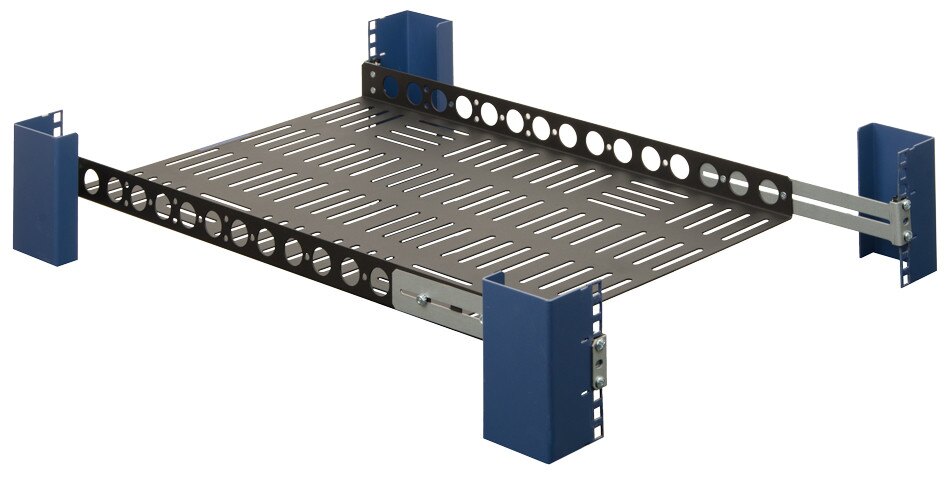
Rather than mounting, shelves provide a surface for the storage of equipment. This means that you are not only limited to equipment in the form factor of servers for shelves to work.
While you can mount a server on a shelf, these are usually used for large and heavy equipment like uninterruptible power supplies, or smaller, niche equipment like Mac Minis. Basically, shelves are there to store anything that can’t be mounted on rails.
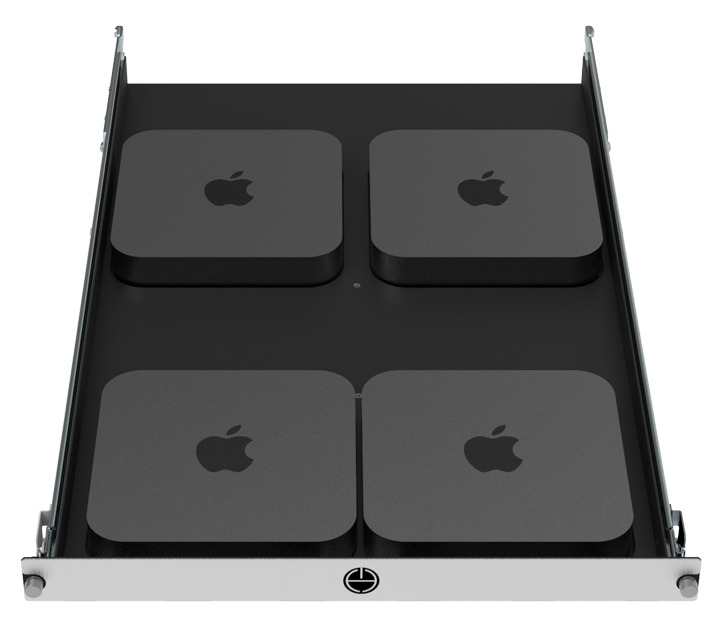
One circumstance where you might want to store a server on a shelf is when there are no slide rails available for your model. In this case, you would be able to use a sliding shelf that makes removal and maintenance about as easy as using slide rail.
TLDR
Sometimes very similar server rack equipment is described by multiple names. Rails and rail kits can come with the exact same product and tools regardless of how they are marketed. Similarly, the usage of L brackets are how universal rails are able to mount servers, which almost makes them the same things.